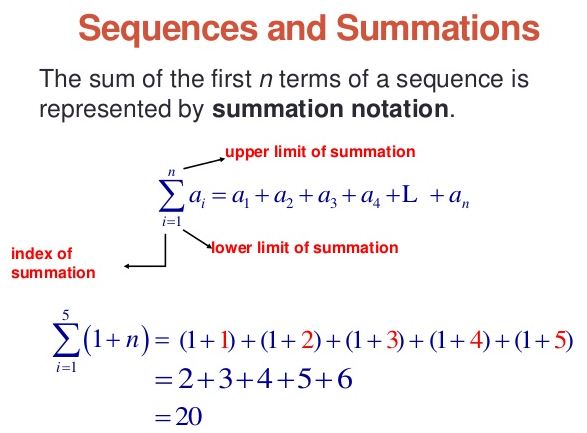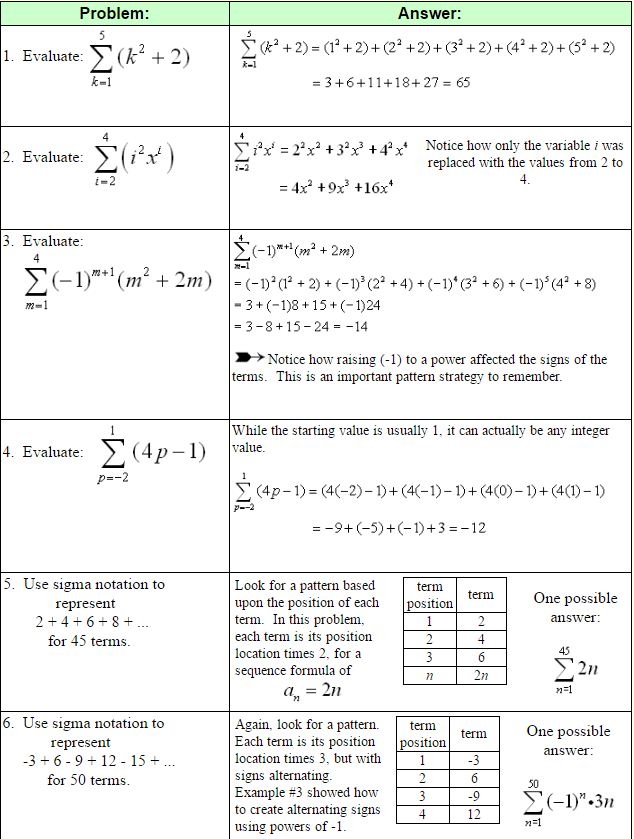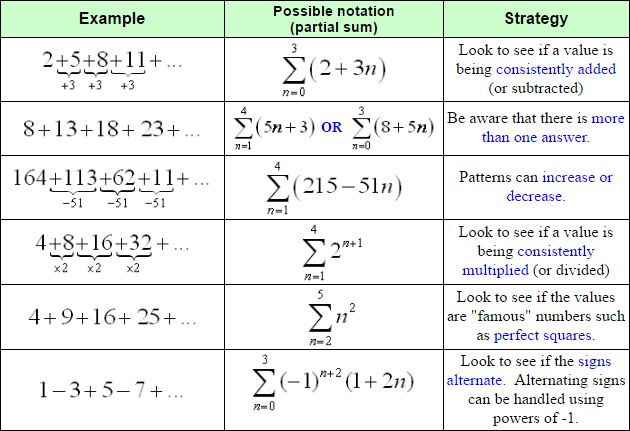Sigma Notation and Series
Consider the sequence 10.20, 11.40, 12.10, 13.40 where each term represents the amount of money you earned as interest on your savings account for each of four years.
The sum of the terms, 10.2 + 11.4 + 12.1 + 13.4, represents the total interest you earned in the four year period. Such a sequence summation is called a series and is designated by Sn where n represents the number of terms of the sequence being added.
Sn is often called an nth partial sum, since it can represent the sum of a certain “part” of a sequence.

A series can be represented in a compact form, called summation notation, or sigma notation.
The Greek capital letter sigma, , is used to indicate a sum.

Examples:

Strategies to remember when trying to find an expression for a sequence (series):

